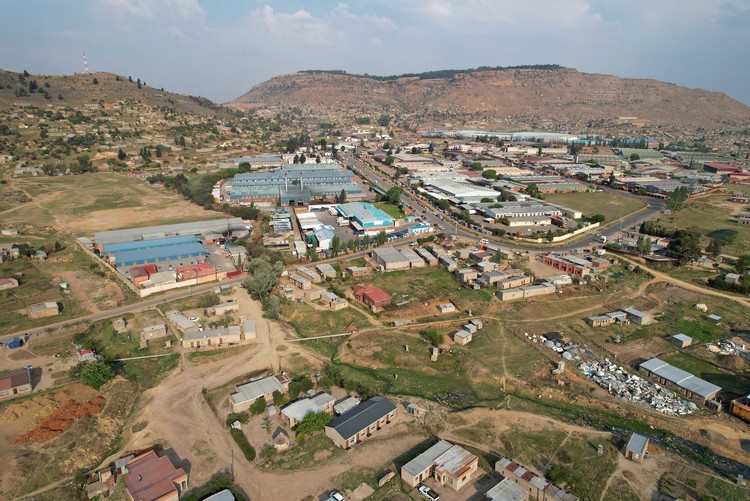
26 September 2025
Thetsane industrial area in Maseru is home to many garment factories. Archive photo: Sechaba Mokhethi
The African Growth and Opportunity Act (AGOA) is likely to be renewed for one year, Lesotho’s trade minister Mokhethi Shelile told reporters on Wednesday. AGOA has previously been renewed for a decade at a time.
AGOA has, since 2001, enabled duty-free exports from Lesotho to the US. Garments make up 80% of Lesotho’s exports to the US, which accounts for roughly 20% of the country’s total exports.
Earlier this month, a delegation led by Shelile and Minister of Labour Tšeliso Mokhosi lobbied lawmakers in Washington. They returned assured that AGOA would be renewed for a year, although this may only happen in November or December.
The act is still set to expire on 30 September. This could result in tariffs of 31% on Lesotho’s exports to the US. Lesotho products are currently subject to 15% “reciprocal tariffs” introduced in April. After AGOA expires, products may face an additional 16% tariff, said Shelile.
Shelile said Lesotho has 11 companies exporting to the US, employing more than 12,000 workers. Roughly 40,000 additional jobs in logistics and related sectors could also be at risk should AGOA not be renewed, he said.
“We met ten lawmakers, including the Speaker, committee chairs, assistants, and other members, both Republicans and Democrats,” Shelile said. “All expressed support for AGOA’s renewal and promised to advocate for it.”
But during the one-year renewal, the act will be reviewed to ensure it aligns with the government’s “America First” policy. Shelile said Lesotho’s delegation emphasised that AGOA benefits the US as much as it does Africa.
Shelile added that meetings with the US Department of Trade addressed how AGOA’s termination would affect Lesotho. “They promised to consider pausing either reciprocal or Most Favoured Nation tariff rates so that only one applies while awaiting AGOA’s renewal,” he said.
Lesotho is encouraging the industry to look beyond the US market. Shelile cited Nien Hsing, a major manufacturer whose products — once largely destined for America — are now being redirected. “Thirty per cent of their output now goes to South Africa, 70% to the US,” Shelile said.
Over the past 15 months, Lesotho has opened 14 new firms, many of which are supplying regional markets through the Southern African Customs Union.
“We are preparing workshops to enter European markets, and the European Commission has contacted us to connect with our producers,” Shelile added.
Discussions with the Japanese and Nigerian markets are also underway.